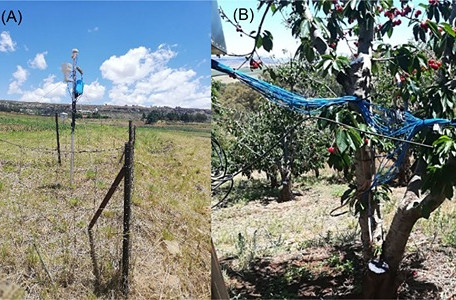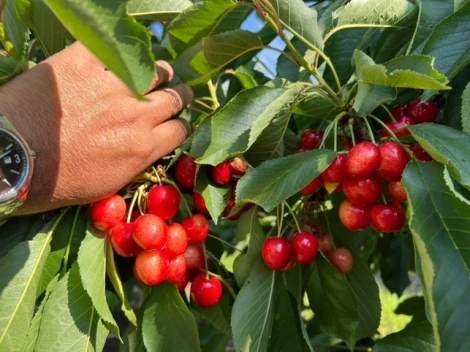Between customs duties and adverse weather conditions, the Michigan cherry sector is facing one of the most critical challenges in its history. Experts warn that the entire supply chain is at a breaking point, with thousands of farms at risk.
Duties that protect... and penalize
The Michigan cherry industry, responsible for 75% of the national tart cherry production, is at a crossroads. The 10% tariffs imposed by the Trump administration on imports could theoretically offer a competitive advantage against exporting countries like Turkey.
However, according to experts from Michigan State University (MSU), the balance risks being negative: production costs are skyrocketing due to the rising prices of fertilizers, pesticides, and imported specialized equipment.
The MSU report raises an alarm: a 10% increase in labor costs for the cultivation and processing of specialty crops could lead to the loss of over 1,600 jobs in the state.
Ripple effects would also harm other crops that share resources with cherries.
Numbers and global competition
In 2022, Michigan produced 180 million pounds (about 81.6 million kg) of tart cherries worth 36.5 million dollars (about 34 million euros), according to official data.
But international competitiveness is severely challenged, especially by producers like Turkey who export cherry juice at prices lower than American production costs.
Chris Bardenhagen, an expert in agricultural business management at MSU's Leelanau County Extension, emphasizes that even with tariffs, Turkish competition will remain strong.
"It will take years to understand whether the advantages will truly be significant," he says.
The weight of climate and uncertainty
Complicating matters further, extreme weather events in 2024 drastically reduced harvests.
According to Tim Boring, director of the Michigan Department of Agriculture and Rural Development, the increase in agricultural exports in 2023 (+11% for a value of 2.9 billion dollars, about 2.7 billion euros) is not enough to reassure a sector so vulnerable to international trade shocks.
David Ortega, professor of agricultural economics at MSU, warns: "Uncertainty linked to tariff policies makes it extremely difficult for farmers to plan investments and strategies."
The producers' perspective
Mike Deruiter, a grower from Hart, reports that the value of his cherries has dropped by more than 40% since 2015, due to a lethal combination of trade policies, bad weather, and rising labor costs.
According to Deruiter, many farmers see tariffs as a "short-term pain" that could turn into a "long-term gain."
"Cautiously optimistic: that's the phrase I use most often," he concludes.
Conclusion
The future of the Michigan cherry industry appears uncertain, suspended between hopes for a competitive rebalance and fears of structural decline.
It will be crucial to monitor the evolution of trade policies and climate dynamics to understand whether the sector can overcome this double challenge — a testing ground that also closely concerns European producers facing similar issues.
Source: planetdetroit.org
Cherry Times - All rights reserved










